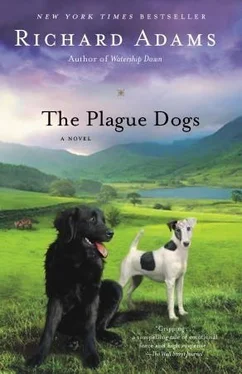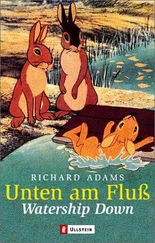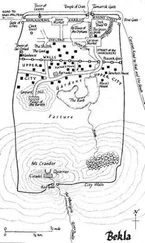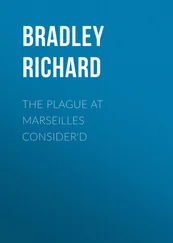Richard Adams - The Plague Dogs
Здесь есть возможность читать онлайн «Richard Adams - The Plague Dogs» весь текст электронной книги совершенно бесплатно (целиком полную версию без сокращений). В некоторых случаях можно слушать аудио, скачать через торрент в формате fb2 и присутствует краткое содержание. Город: New York, Год выпуска: 2007, ISBN: 2007, Издательство: Ballantine Books, Жанр: Природа и животные, Фэнтези, на английском языке. Описание произведения, (предисловие) а так же отзывы посетителей доступны на портале библиотеки ЛибКат.
- Название:The Plague Dogs
- Автор:
- Издательство:Ballantine Books
- Жанр:
- Год:2007
- Город:New York
- ISBN:978-0-345-49402-3
- Рейтинг книги:3 / 5. Голосов: 1
-
Избранное:Добавить в избранное
- Отзывы:
-
Ваша оценка:
- 60
- 1
- 2
- 3
- 4
- 5
The Plague Dogs: краткое содержание, описание и аннотация
Предлагаем к чтению аннотацию, описание, краткое содержание или предисловие (зависит от того, что написал сам автор книги «The Plague Dogs»). Если вы не нашли необходимую информацию о книге — напишите в комментариях, мы постараемся отыскать её.
, Richard Adams creates a lyrical and engrossing tale, a remarkable journey into the hearts and minds of two canine heroes, Snitter and Rowf, fugitives from the horrors of an animal research center who escape into the isolation—and terror—of the wilderness.
The Plague Dogs — читать онлайн бесплатно полную книгу (весь текст) целиком
Ниже представлен текст книги, разбитый по страницам. Система сохранения места последней прочитанной страницы, позволяет с удобством читать онлайн бесплатно книгу «The Plague Dogs», без необходимости каждый раз заново искать на чём Вы остановились. Поставьте закладку, и сможете в любой момент перейти на страницу, на которой закончили чтение.
Интервал:
Закладка:
“Oh, Rowf, look, two of them have got brown clothes and red hats!”
“It doesn’t matter any more. We’re all right with this man. We’re safe.”
“I’ve never heard you say anything like that before.”
“Well, you have now.”
There was a gentle scraping, a slight lurch and then everything stopped rocking and became still. Rowf’s man climbed over the side into the water and began splashing away towards the sand-dunes.
“Why’s one of those men lying down on the sand like that?”
“Which one? Where? Oh!—”
Snitter stared and stared, waiting for the figure to disappear. It did not. Rowf’s man, wading away, passed between them. When he had gone by, the recumbent figure was still there, and in that moment saw Snitter; and called him by name.
Snitter went over the side in a welter of waves and sea-drift, Rowf barking, gulls swooping and the voice calling from beyond a white foam of rhododendrons all in bloom. And as the morning steals upon the night, melting the darkness, so his rising senses began to chase the ignorant fumes that had so long mantled his clearer reason. Water prickling in the ears, and long strands of brown, crinkled weed slippery under the paws. Snitter shook himself, ran up the beach like a streak of quicksilver and found himself clasped in the arms of his master.
Even Shakespeare, with all his marvellous achievements at his back, apparently felt unequal to depicting the reunion between Leontes and his Perdita, whom he had believed lost and mourned as dead. He showed better sense than his critics. So forgive me—I make a broken delivery of the business on the sand-dunes at Drigg. I never heard of such another encounter: a sight which was to be seen, but cannot be spoken of. They looked as they had heard of a world ransomed, or one destroyed. A notable passion of wonder appeared in them, but the wisest beholder could not say if the importance were joy or sorrow.
I have often thought (and this is me again now) that it is strange that no event or happening, however marvellous or splendid, can transcend the limits of time and space. They were hours and minutes that Leander spent with Hero, and certain musical notes necessarily comprised the song the sirens sang. The finest wine can be drunk only once; and the more words that are used to describe it, the sillier they sound. But perhaps, as Major Awdry would no doubt maintain, an animal living entirely in the immediate present (and believing himself dead) might feel the tide of joy even more intensely—if that were possible—than his master (who knew he was alive).
As Mr. Wood’s tears began to fall upon Snitter’s lifted face and slobbering tongue, Peter Scott, John Awdry and the others turned aside and strolled up the beach, looking out to sea and talking with careful detachment about the tide, the Orielton’s draft and the Ravenglass anchorage.
Now I saw in my dream that they had gone only a very little way when they were ware of a foul limousine coming to meet them across the lea. Bumping along the track, it made a slow course among the marram grass and came to a halt not far from where Mr. Wood was holding Snitter in his arms. In the back were seated the Right Hon. William Harbottle and the Under Secretary.
His companions turned to rejoin Mr. Wood and the Secretary of State got out of the car and also approached him.
“Good morning,” he said, as Mr. Wood looked up. “You must be one of the splendid people who’ve helped to capture these dogs at last. I’m very grateful to you, and so will many other people be, I’m sure.”
Mr. Wood gazed at him with a bewildered air, like a man interrupted in prayer or the contemplation of some splendid painting.
“Major,” said Hot Bottle Bill, turning to John Awdry, “can we get this unpleasant business over at once? Shoot the dog as quickly as you can, will you, please?”
“This is the dog’s lawful owner, sir,” said Awdry. “In all the circumstances—”
“The dog’s owner? This is very unexpected news!” said the Secretary of State. “I thought the Research Station—Well, I’m sorry, but I’m afraid it can’t make any difference. Will you please carry on at once and shoot the dog?”
“With the greatest respect, sir,” replied Awdry, “I am not responsible to you, but to my battalion commander. I don’t intend to shoot the dog and I will tell my battalion commander my reasons at the first opportunity.”
Hot Bottle Bill was drawing breath to reply when a second figure appeared beside Major Awdry.
“I beg your pardon, sir,” said Major Rose, “but I happen to be the warden of this nature reserve. No animal may be killed here, by law, and to bring in a firearm is illegal. I feel compelled to point out also that motor-cars, apart from my own, are not allowed and that you have no authority to have brought one in. I must respectfully ask you to leave at once.”
Still Hot Bottle Bill stood his ground.
“I don’t think you understand—” he began, when suddenly there appeared beside the two majors a third figure, terrible indeed, shaggy-haired, duffle-coated and armed with a camera as Perseus with the Gorgon’s head.
“In case you don’t know me , Secretary of State, I’m Digby Driver of the London Orator . If it’ll save any time, I may as well tell you that if you have that dog shot Sir Ivor Stone and I will make your name stink from here to Buckingham Palace and the House of Commons.” He paused, and then added, “We can, you know.”
Hot Bottle Bill was not a British Cabinet Minister for nothing. For one long moment he contemplated the dauntless three upon the strand. Then he retreated to the car and could be seen telling his higher civil servant to go and deal with the matter.
The Under Secretary advanced with circumspection, evidently wondering whether it would be safer to tackle Titus Herminius or Spurius Lartius.
“Er,” he began, “I-er-think—”
But we shall never know what the Under Secretary thought, for at that moment a white-fanged, snarling beast, black as a kodiak bear, hurled itself forward from behind Sir Peter Scott (even he jumped) and stood barking fit to defend the Bank of England.
“Rowf! Rowf-rowf! Grrrrrr-owf! Grrrrrr-owf! Rowf!”
The Under Secretary was not a senior civil servant for nothing. He hastened back to the limousine, which shortly reversed and went bumping away, with Rowf, still barking, in pursuit.
“Oh, boy!” shouted Digby Driver, literally dancing on the sand. “What a riot! And I’ve got two shots of Harbottle looking at the dog out of the window—panic all over his face—if only they come out!”
“I can’t help feeling a bit worried,” said Major Awdry. “I only hope to God we’ve done right. But to tell you the truth, I really felt so—”
“Don’t worry about a thing!” cried Digby Driver, slapping him on the back. “Not a little thing! You were terrific, Major! What a fantastic turn-up for the book! Ever heard of the power of the press? Oh, brother, are you about to see it for real or are you? Sir Ivor’ll give me the Japanese Order of Chastity, Class Five, for this, wanna bet? Old Harbottle, ho! ho!”
He capered among the laminaria saccharina as the tide came flowing in, but suddenly checked himself upon catching sight of the pale and sweating face of Mr. Wood, where he still sat at the foot of the dune.
“I say,” he said, crossing quickly over to him, “how’s it going? Are you O.K.?”
“Not too good, I’m afraid,” gasped Mr. Wood, “but what’s it matter? Oh, Snitter, Snitter, my dear old chap, there there, don’t worry” (to be perfectly honest, Snitter did not look worried), “we’re going home, boy, home! I’ll look after you. We’re just a couple of old crocks now, so you can look after me too. Who’s this big, black fellow? This your mate, is he? Well, I dare say we can find a place for him as well. That’s a good old chap, then! That’s a good boy!” (Rowf stood like a dog in a dream as his ears were scratched by a second man within the hour.)
Читать дальшеИнтервал:
Закладка:
Похожие книги на «The Plague Dogs»
Представляем Вашему вниманию похожие книги на «The Plague Dogs» списком для выбора. Мы отобрали схожую по названию и смыслу литературу в надежде предоставить читателям больше вариантов отыскать новые, интересные, ещё непрочитанные произведения.
Обсуждение, отзывы о книге «The Plague Dogs» и просто собственные мнения читателей. Оставьте ваши комментарии, напишите, что Вы думаете о произведении, его смысле или главных героях. Укажите что конкретно понравилось, а что нет, и почему Вы так считаете.












